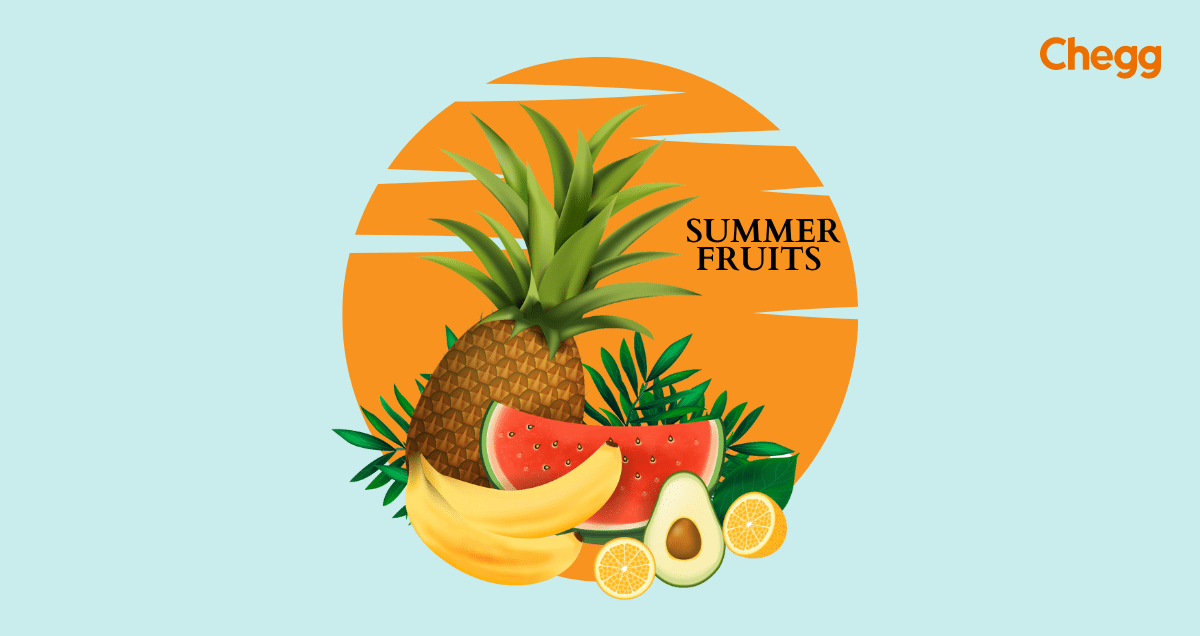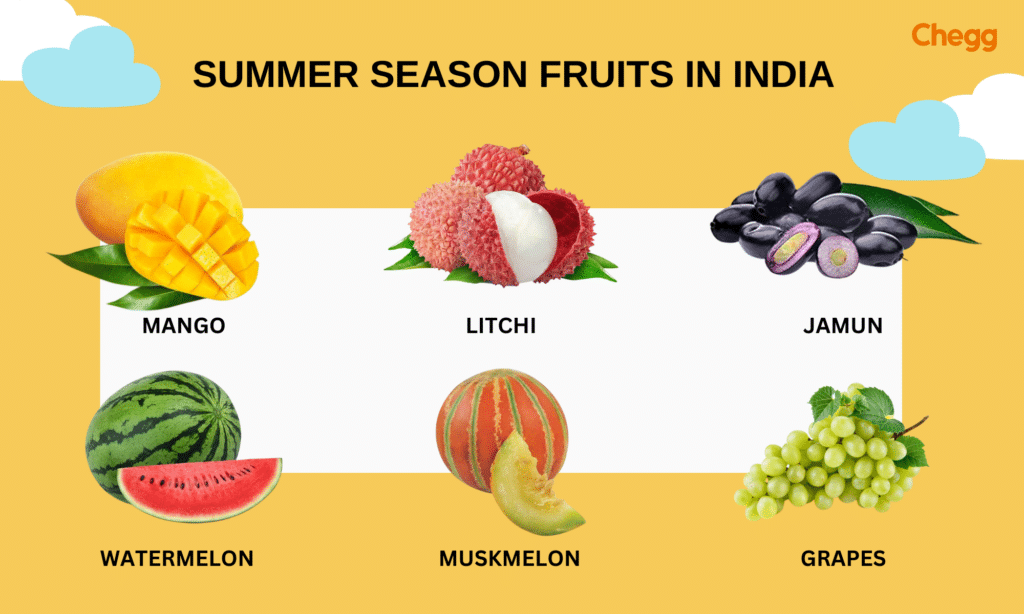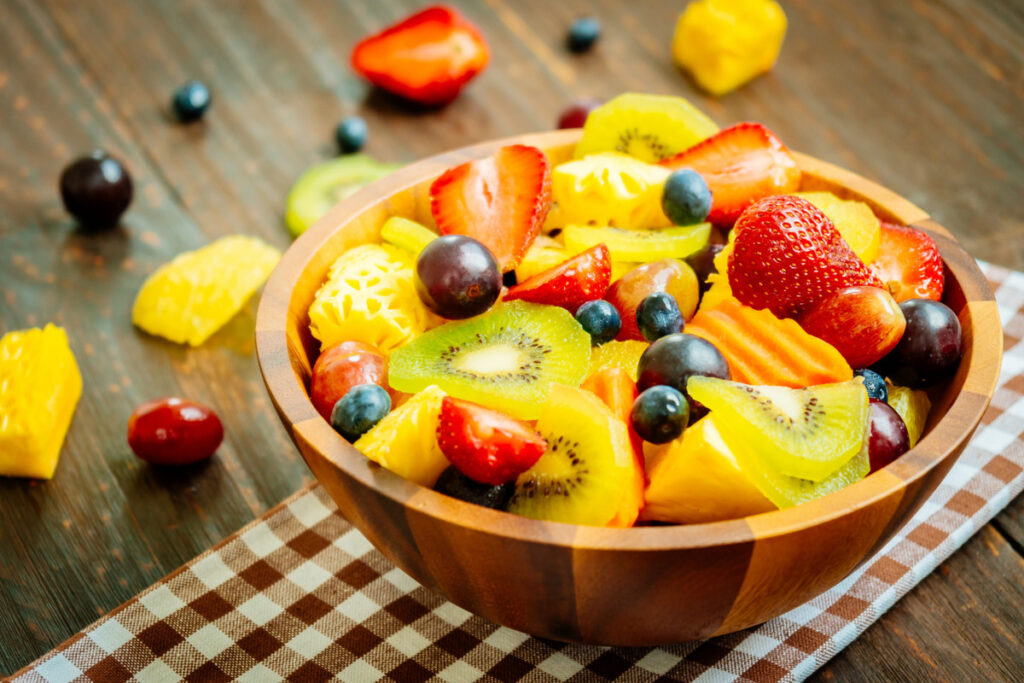
Quick Summary
Table of Contents
Summer season fruits in India celebrate flavor, color, and nutrition. As temperatures soar from March to June, these juicy delights offer a refreshing respite from the heat. From the king of fruits, mango, to hydrating watermelons and muskmelons, summer season fruits in India provide a delicious way to stay calm. Thanks to the country’s diverse climate, summer season fruits in India include many options such as lychees, jamun, and papayas, each packed with unique health benefits. Embrace the vibrant tastes and wholesome goodness of summer season fruits in India to make the most of the season.
From the nationally beloved mango to the hydrating watermelon, these seasonal treats are more than just snacks – they’re an integral part of Indian culture and cuisine. Packed with vitamins, minerals, and antioxidants, summer season fruits in India provide a natural way to stay healthy and hydrated during the hottest months. From juicy lychees and refreshing muskmelons to the tangy taste of jamun, summer season fruits in India offer a variety of flavors to enjoy. Succulent papayas and zesty pineapples add to the list, making summer fruits in India a perfect choice to beat the heat. Embrace the wholesome goodness of summer fruits in India and celebrate the vibrant tastes of the season.
In this guide, we’ll explore the 15 most popular summer fruits in India, delving into their nutritional profiles, selection tips, and creative ways to enjoy them. Whether you’re a fruit enthusiast, a health-conscious individual, or simply curious about Indian seasonal produce, this comprehensive look at summer fruits in India has something for everyone. Let’s follow us on this juicy journey through India’s summer fruit basket!

Let’s explore these summer fruits in India one by one in detail. From the refreshing mango to the cooling watermelon, summer fruits in India offer a variety of flavors and health benefits that are perfect for the hot months. Each fruit has its unique taste and nutritional value, making it an essential part of the summer experience in India.
Known as the ‘King of Fruits’ in India, the mango is perhaps the most beloved summer fruit in the country. With its sweet, juicy flesh and rich aroma, it’s no wonder that mangoes are eagerly awaited each year.
Mangoes are incredibly versatile. You can enjoy them fresh, add them to smoothies, and use them in desserts or savory dishes like mango curry. The Alphonso mango from Maharashtra is particularly famous for its sweetness and is often considered one of the best varieties in the world.
Nothing says summer quite like a slice of cool, refreshing watermelon. This large, juicy fruit is a favorite at picnics and beach outings across India.
Watermelon is usually eaten fresh, often sprinkled with a bit of chaat masala for a tangy twist. It’s also great in fruit salads or blended into a refreshing juice. Some people even enjoy the seeds, which are packed with nutrients!
These small, round fruits with bumpy red skin are a true summer delicacy. Once you peel off the thin skin, you’ll find translucent white flesh with a delicate floral flavor.
Lychees are usually eaten fresh, but they’re also great in desserts or as a flavoring for drinks. In some parts of India, they’re even used to make wine! Be careful not to eat too many at once, though, as they can cause a bit of a sugar rush.
Jackfruit is the world’s largest tree-borne fruit with a spiky green exterior. Don’t let its intimidating appearance fool you – inside, you’ll find yellow, fleshy bulbs that are sweet and flavorful.
In India, jackfruit is enjoyed both ripe and unripe. Ripe jackfruit is sweet and often eaten fresh or used in desserts. On the other hand, unripe jackfruit is used in savory dishes like curries and biryanis. The seeds are also edible and can be roasted like nuts.
While pineapples aren’t native to India, they’ve become a popular summer fruit, especially in the southern and northeastern states.
Pineapples are great eaten fresh, grilled, or added to fruit salads. They’re also a key ingredient in many sweet and sour dishes in Indian cuisine. In some parts of India, pineapple curry is a popular dish!
Papaya, with its soft, orange flesh and tiny black seeds, is a fruit available year-round in India but incredibly refreshing in the summer. It pairs perfectly with other summer-season fruits in India, like mangoes and watermelons, packed with hydration and nutrients. These summer season fruits in India are delicious and offer a natural way to cool down during the hot months.
Ripe papaya is usually eaten fresh or added to fruit salads. Green, unripe papaya is used in salads, notably in Thai-inspired dishes. The seeds, which have a peppery taste, can be dried and used as a spice.
Jamun, or Java plum or black plum, is a small, dark purple fruit with a sweet and slightly tart flavor.
Jamun is usually eaten fresh, often sprinkled with salt to enhance flavor. In some parts of India, it’s also used to make jams, jellies, and even wine. The seed powder is used in Ayurvedic medicine.
Muskmelon, also known as kharbuja in Hindi, is a sweet, aromatic fruit close to the cantaloupe.
Muskmelons are usually cut into slices and eaten fresh. They’re also great in fruit salads or blended into smoothies. In some parts of India, the seeds are dried and eaten as a snack.
While often thought of as a vegetable, cucumber is botanically a fruit. It’s a cool, crisp addition to any summer meal.
In India, cucumbers are often eaten raw as a snack or added to salads. They’re also a key ingredient in raita, a cooling yogurt-based side dish. Cucumber juice is popular in some regions as a refreshing summer drink, just like other summer fruits in India, such as mangoes and watermelons, which are perfect for staying hydrated during the heat. These summer fruits in India refresh and provide essential nutrients to keep you healthy throughout the summer.
Plums come in various colors, from deep purple to red to yellow, with a sweet-tart flavor.
Plums are usually eaten fresh but are also used in jams and chutneys. A spicy-sweet plum sauce is a popular condiment in some parts of northern India.
Apricots are small, golden fruits with a sweet-tart flavor and soft, velvety skin.
Fresh apricots are delicious on their own or added to fruit salads. They’re also used in jams, preserves, and even in some savory dishes in Indian cuisine.
While strawberries are not traditionally a summer fruit in most of India, they are grown in hill stations and are available in markets during the early summer months.
Strawberries are often eaten fresh, used in desserts, or made into jams. They’re sometimes added to fruit chaat (spicy fruit salad) for a unique twist in India.
Figs are sweet, soft fruits with a unique texture due to their tiny, crunchy seeds.
In India, figs are often eaten fresh or dried. They’re also used in traditional medicine and are believed to have various health benefits. Fig preserves and chutneys are popular in some regions, and other summer-season fruits in India, like mangoes and watermelons, are enjoyed for their refreshing taste and hydrating qualities. These summer season fruits in India add flavor to dishes and provide essential nutrients during the hot months.
Starfruit, named for its distinctive shape when cut crosswise, has a crisp texture and a sweet-tart flavor.
Starfruit is usually eaten fresh, often sliced, and added to fruit salads. It’s also used to make juices and preserves. In some parts of India, it’s used in pickles and chutneys, along with other popular summer season fruits like mangoes and watermelons, which are enjoyed for their refreshing taste and nutritional value. These summer season fruits in India are delicious and help keep you hydrated and energized during the hot summer months.
While available year-round, coconuts are incredibly refreshing in the summer months.
Young coconuts provide refreshing water and soft, jelly-like flesh. Mature coconuts have firmer flesh, which is used in cooking, baking, and making coconut milk. Coconut water is a popular natural electrolyte drink, perfect for hot summer days.

Summer fruits are not just refreshing; they are packed with essential vitamins, minerals, and antioxidants vital for your health, especially during the hot season. Here are the key benefits of adding them to your diet:
Remember, healthy fruits should be part of a balanced diet. It’s always a good idea to enjoy a variety of summer season fruits in India to get a wide range of nutrients. Incorporating popular summer season fruits in India, like mangoes, watermelons, and lychees, into your diet can help you stay refreshed and energized. Besides their hydrating properties, summer season fruits in India are rich in essential vitamins and minerals, making them a perfect addition to your meals. To maximize health benefits, try different combinations of summer season fruits in India and enjoy the delicious flavors of the season.
Succulent papayas and zesty pineapples add to the list, making summer fruits in India a perfect choice to beat the heat. Embrace the wholesome goodness of summer fruits in India and celebrate the vibrant tastes of the season.
Choosing ripe, fresh fruits and storing them properly can help you enjoy them at their best. Here are some general tips:
Here’s a table with specific storage tips for our summer fruits:
| Fruit | Storage Method | Shelf Life |
|---|---|---|
| Mango | Room temperature until ripe, then refrigerate | 5-7 days |
| Watermelon | Room temperature until cut, then refrigerate | 3-5 days (cut) |
| Lychee | Refrigerate in a plastic bag | 5-7 days |
| Jackfruit | Room temperature until ripe, then refrigerate | 3-5 days (cut) |
| Pineapple | Room temperature if eating soon, otherwise refrigerate | 3-5 days |
| Papaya | Room temperature until ripe, then refrigerate | 5-7 days |
| Jamun | Refrigerate in a covered container | 2-3 days |
| Muskmelon | Room temperature until ripe, then refrigerate | 3-5 days (cut) |
| Cucumber | Refrigerate in a plastic bag | 1 week |
| Plum | Refrigerate | 3-5 days |
| Apricot | Refrigerate when ripe | 3-5 days |
| Strawberry | Refrigerate, unwashed, in a single layer | 3-5 days |
| Fig | Refrigerate | 2-3 days |
| Starfruit | Refrigerate when ripe | 3-5 days |
| Coconut | Room temperature if whole, refrigerate if cut | 1 week (cut) |
Remember, these are general guidelines. Always use your best judgment and consume summer season fruits in India before they spoil to enjoy their peak freshness. Whether it’s the juicy mangoes or the hydrating watermelons, enjoy summer season fruits in India when they’re at their best.
Keep an eye on the ripeness of your summer season fruits in India, like lychees and muskmelons, to make the most of their delicious flavors. Proper storage can help extend the shelf life of summer season fruits in India so you can savor them throughout the season.
Enjoying summer season fruits in India doesn’t always mean eating them plain. Here are some simple, delicious recipes you can try with your favorite summer season fruits in India. Whether it’s a refreshing fruit salad, a chilled smoothie, or a tangy chutney, these fruits can be transformed into delightful dishes that will help you beat the heat and enjoy the flavors of summer.

It is a cool, refreshing drink perfect for hot summer days, which saves us from heat waves.
1.1. Ingredients:
1.2. Steps:

A hydrating drink that’s both sweet and refreshing.
2.1. Ingredients:
2.2. Steps:

A tangy and spicy fruit salad that’s a popular street food in India.
3.1. Ingredients:
3.2. Steps:

A light and refreshing dessert perfect for summer evenings.
4.1. Ingredients:
4.2. Steps:

A unique way to enjoy jackfruit in a savory dish.
5.1. Ingredients:
5.2. Steps:
These recipes are just a starting point. Feel free to experiment and create unique dishes with these delicious summer fruits in India! Whether it’s a refreshing fruit salad or a chilled smoothie, summer fruits in India offer endless possibilities for adding flavor and nutrition to your meals.
| Month | Fruits in Season |
|---|---|
| January | Oranges, Grapes, Apples, Papaya |
| February | Oranges, Grapes, Apples, Strawberries |
| March | Mangoes, Papaya, Watermelon, Pineapple |
| April | Mangoes, Watermelon, Lychee, Jackfruit |
| May | Mangoes, Lychee, Watermelon, Jamun |
| June | Mangoes, Lychee, Jamun, Plums |
| July | Jamun, Plums, Papaya, Pomegranate |
| August | Papaya, Pomegranate, Apples, Bananas |
| September | Bananas, Apples, Grapes, Custard Apple |
| October | Apples, Grapes, Guava, Papaya |
| November | Guava, Oranges, Grapes, Pomegranates |
| December | Oranges, Grapes, Apples, Papaya |
For more detailed information about seasonal fruits in India, visit the National Horticulture Board.
Enjoy India’s wide variety of seasonal fruits this summer, from the juicy sweetness of mangoes to the hydrating goodness of watermelons and the tangy zest of lychees. These fruits offer a delicious way to beat the heat and are packed with essential vitamins, minerals, and antioxidants that enhance your health and boost immunity.
Make the most of the season by visiting local markets or browsing online stores to find the freshest summer season fruits in India. From succulent mangoes to hydrating watermelons, summer season fruits in India bring flavor and nutrition to your table. Embrace these natural delights, such as muskmelons and lychees, among India’s most popular summer season fruits, and enjoy their health benefits all summer. Let summer season fruits in India be your go-to choice for staying refreshed and energized during the hottest months!
Recommended Read :-
Popular summer fruits in India include mangoes, watermelons, muskmelons, lychees, and pineapples.
Pomegranate is primarily a winter fruit, but it is available throughout the year in some parts of India.
Watermelon has the highest water content among summer fruits in India, at about 92%. This makes it an excellent choice for staying hydrated during hot summer days.
Many summer fruits can benefit weight management when consumed as a balanced diet. Fruits like watermelon, papaya, and jamun are low in calories and fiber, which can help you feel full. However, remember that overall diet and lifestyle are key factors in weight management.
Watermelon is often considered the best fruit for summer due to its high water content, which helps to keep the body hydrated.
Several summer fruits in India are rich in Vitamin C. The best sources include Indian gooseberry (Amla), Guava, Lychee, Papaya, and Pineapple. These fruits can help boost your immune system and promote healthy skin.
While fruits contain natural sugars, many can be part of a healthy diet for people with diabetes when consumed in moderation. Due to their lower glycemic index, fruits like jamun, guava, and papaya are often recommended. However, it’s always best to consult a healthcare provider or a dietitian for personalized advice.
There are many ways to enjoy more summer fruits:
1. Add them to your breakfast cereal or oatmeal
2. Make fruit smoothies or fresh juices
3. Use them in salads, both sweet and savory
4. Grill fruits like pineapple or peaches for a unique dessert
5. Freeze fruit pieces for a cool snack
6. Use them as toppings for yogurt or ice cream
Summer fruits In India, like mango, watermelon, lychee, and vegetables like cucumber, bottle gourd, and pumpkin, help keep the body cool, hydrated, and healthy during the heat.

Authored by, Amay Mathur | Senior Editor




Amay Mathur is a business news reporter at Chegg.com. He previously worked for PCMag, Business Insider, The Messenger, and ZDNET as a reporter and copyeditor. His areas of coverage encompass tech, business, strategy, finance, and even space. He is a Columbia University graduate.
Editor's Recommendations
Chegg India does not ask for money to offer any opportunity with the company. We request you to be vigilant before sharing your personal and financial information with any third party. Beware of fraudulent activities claiming affiliation with our company and promising monetary rewards or benefits. Chegg India shall not be responsible for any losses resulting from such activities.
Chegg India does not ask for money to offer any opportunity with the company. We request you to be vigilant before sharing your personal and financial information with any third party. Beware of fraudulent activities claiming affiliation with our company and promising monetary rewards or benefits. Chegg India shall not be responsible for any losses resulting from such activities.